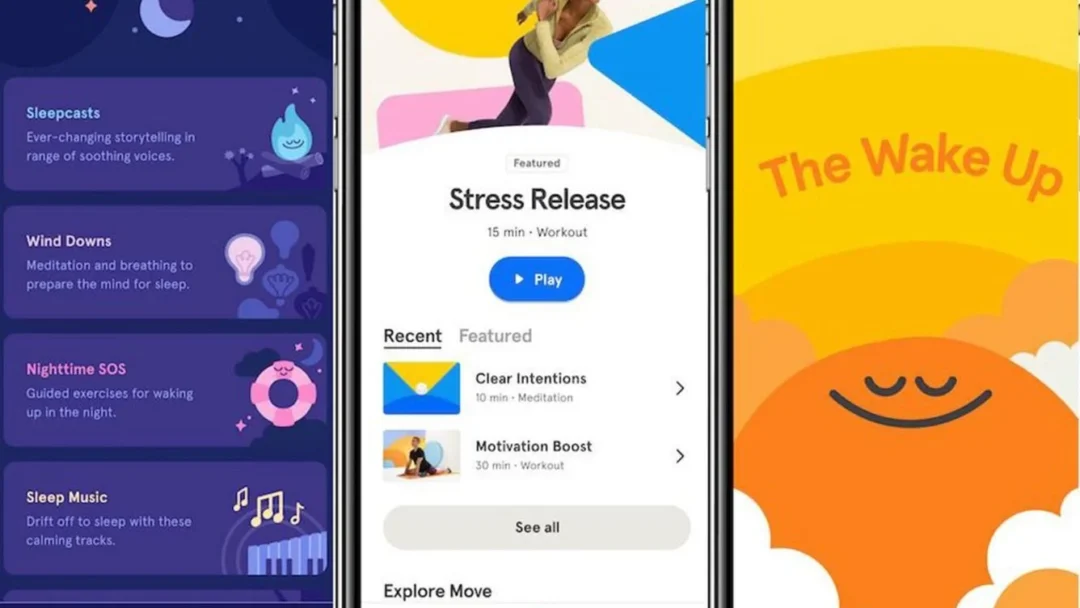Commodifying Mental Health: Online Therapy Platforms Operating Within a Neoliberal Framework

Introduction
Online therapy platforms, such as BetterHelp, TheraHive, and TalkSpace, have become increasingly popular in recent years, driven by the growing demand for accessible mental health care. Each of these services aims to support individuals’ mental health and well-being, often promoting themselves as “convenient,” “efficient,” and “solution-focused,” aligning closely with the demands of a fast-paced, productivity-driven society. While their time-efficient approach appeals to a middle-class working demographic, these platforms contribute to a neoliberal framework that commodifies mental health, presenting it as a quick and individualized fix, rather than acknowledging its deep complexity. This paper argues that such platforms risk oversimplifying the therapeutic process, instead prioritizing efficiency and profitability over the nuanced, long-term care individuals require. In doing so, they promote a market-oriented model of wellness in which mental health is treated less as a systemic issue and more as a private, individualized responsibility. This framing not only narrows the scope of therapeutic care but also reinforces neoliberal ideologies that locate the problem within the individual while obscuring the broader structural and social determinants of mental health.
The Framework: Neoliberalism Influence on Mental Health
I begin this paper by introducing the theoretical framework that informs my analysis. Central to this framework is neoliberalism—a dominant political and economic ideology that has significantly reshaped institutions, policies and everyday life since the late 20th century (Rajesh 165). Neoliberalism emphasizes the primacy of market value, promoting individual responsibility, competition and privatization. It positions the market as the most efficient and legitimate means of organizing society, often at the expense of collective welfare and public accountability. This ideology not only influences economic practices but also profoundly affects cultural norms and social relations, as well as how we perceive health, happiness, and success. By situating my analysis within this context, I aim to understand how neoliberalism shapes our understanding and approaches to individual mental health.
Under the influence of neoliberalism, mental disorders come to be seen primarily as individual issues, separated from social, economic, and political contexts. They are framed as personal pathologies that can be identified and treated using supposedly objective and value-neutral scientific and medical approaches (Esposito & Perez 415). Consequently, mental health becomes commodified: something to be marketed, sold, and consumed. Therapeutic services and psychiatric interventions are packaged as solutions that individuals must purchase to become functional, productive members of society. This not only obscures the root causes of psychological distress but also reinforces the idea that well-being is a matter of personal investment rather than systemic change (Cabanas & Illouz 80). As a result, the burden of recovery is placed squarely on the individual, while structural inequalities remain unaddressed, depoliticized, and outside the scope of mainstream mental health discourse.
The Rise of Online Therapy Models
Next, I will turn to an analysis of how, within a neoliberal context, society responds to the rising prevalence of mental health concerns, emphasizing market needs over individual circumstances. In Canada, about 1 in 5 individuals experience mental illness each year (Centre for Addiction and Mental Health). Additionally, over the past 10 years, the prevalence of mood and anxiety disorders has substantially increased (Statistics Canada). With that being the case, we have seen a surge in online therapy platforms, which effectively connect users to licensed therapists across modalities, such as text, audio, and video sessions. One of the primary aims of these platforms is to address some of the notable barriers, including high costs, time and geographical distance, which often hinder individuals from seeking the help they need. Using a digital counselling service, online therapy platforms like BetterHelp, TheraHive, and TalkSpace[1], seek to offer a feasible solution, providing clients with prompt access to mental health support. At first glance, the options and solutions these platforms offer sound appealing and, arguably, more practical compared to conventional in-person mental health supports. However, the issue this paper aims to address is not with the general online-therapy model itself, which may have many benefits for individuals who don’t have the money or access to transport, but rather with the neoliberal framework these specific platforms contribute to through selective methods of marketing and advertising on their websites. That said, future research could examine the overall advantages and potential drawbacks of online therapy compared to traditional in-person services.
Marketing and Advertising on Online Therapy Platforms
In this section of the paper, I will specifically look at three elements: convenience, efficiency, and solution-focused, all of which are components individually featured on the websites of these online therapy platforms. While there are many marketing similarities between these platforms, for this paper, I have identified these three as central elements of neoliberal ideology. These three characteristics have one central thing in common: they promote employee productivity and ensure one can return to the workforce rather than focusing on the root of the issue or the larger systemic issues contributing to the individual’s mental health.
If you browse through each of the platforms, you will find one word featured across all of them: “convenience.” By accessing mental health services online, individuals are promised a more convenient alternative to an in-person appointment; in other words, they are assured that their life and work schedules need not be disrupted while seeking help for their mental health. For instance, on the BetterHelp website, you’ll find the mantra “It’s convenient” alongside a statistic clearly stating that “millions of clients worldwide (4 out of 10) Americans have used online counselling to meet with their therapist due to its convenience and accessibility.” In addition, you will discover the same thing on both the Therahive and TalkSpace websites: “Convenient access anytime, anywhere.” While there isn’t anything objectively wrong with a company offering convenient care to its customers, and while it may even be preferable, the issue lies in what directly follows these statements: the emphasis on convenience typically prioritizes minimal disruption to an individual’s schedule, even as it claims to focus on improving their mental health and well-being. For example, TalkSpace promotes its services by stating: “With virtual therapy, you don’t have to worry about taking extra time out of your day.” At the same time, TheraHive promises “Convenient care: focus on mental health, not on wrangling your schedule.” These assurances frame convenience as a virtue not because of its inherent benefit to the individual’s health, but because it allows them to continue being productive, contributing members of society. The underlying message is clear: wellness is valuable insofar as it enables individuals to return to work, remain efficient, and contribute economically. As the BetterHelp platform explicitly states, “We’re the answer to avoiding employee burnout, improving productivity, and overall well-being in the workplace.” In this context, well-being becomes less about an individual’s holistic well-being and more about optimization, restoring individuals just enough to resume their roles as functional members in the economic sphere. This framing resonates strongly with neoliberal ideologies, which emphasize market interests above all else (Hathaway 316). According to Esposito & Perez, in a market-driven society, where success and happiness are often linked to money and status, buying services that help people achieve these things is seen as helpful, even necessary (416). Within this framework, therapy becomes another consumer good, marketed as a tool to enhance workplace efficiency and optimize mental health’s self—positioning not as a collective or relational concern, but as a private, individualized project of self-management. Ultimately, these platforms promote convenience because they allow mental health care to fit seamlessly around an individual’s work schedule, reinforcing the idea that care must be flexible and non-disruptive to labour. In doing so, therapy is not only commodified but also subordinate to the rhythms of capitalism—something to be slotted in between meetings and resolved quickly so that one can return to work feeling “better” and more productive.
The second characteristic outlined on each website is that individuals will receive results immediately and efficiently. Individuals are promised that, unlike traditional in-person therapy, which can “go on forever,” their assigned modules will be brief, leading to faster results. For instance, Therahive outlines a set of scheduled therapeutic models for its customers, called “Time-boxed training,” which they market as running for only 6 weeks on average. Based on the title alone, the assumption is that individuals have a fixed duration of time to spend on each module. Thus, the key idea is that no matter how much progress is made, the session will end when the allotted time runs out. While this structure may appeal to those seeking quick solutions, it risks decentering the individual and their needs by prioritizing efficiency over adaptability and by implying that therapeutic progress can be standardized within rigid time constraints. Notably, each website also includes wellness statistics that suggest specific timelines for when individuals can expect change. As an example, TalkSpace indicates that after only 3 months, 70% of people saw improvement in their anxiety or depression symptoms. Moreover, BetterHelp reports that after a mere 6 weeks, 69% noticed improvement in anxiety symptoms, while 73% saw improved depression symptoms. This emphasis on quick results not only appeals to the demand for efficiency in contemporary life but also reinforces a broader cultural narrative that mental health issues can, and should, be resolved rapidly. By quantifying improvement and setting expectations for recovery within a defined timeframe, these platforms frame mental wellness as a measurable, time-bound outcome. In other words, they frame mental health as a problem to be solved, rather than a condition to be understood and navigated. This aligns with my earlier point: convenience and efficiency are emphasized to create the impression that your problems have been resolved, enabling you to quickly return to the workforce.
Similarly, the use of psychotropic drugs is often presented as a quick solution to help individuals overcome personal challenges and reintegrate into the prevailing market space (Esposito & Perez 417). This approach reflects a neoliberal logic in which mental health is treated less as a deeply personal and social issue and more as a barrier to productivity that must be swiftly removed. These online therapy platforms, much like the pharmaceutical industry, frame mental health care in terms of optimization—tools to restore individuals to a functional state, primarily so they can resume their roles as productive economic actors. In this sense, mental health interventions become commodified, with each platform advertising more quick and efficient results, aligning more closely with market demands than with the nuanced, often nonlinear process of genuine healing. Such framing risks oversimplifying the complexity of mental health, which often requires long-term engagement, ongoing reflection, and adaptation.
As users might note from each of the virtual mental health platforms, there are no disclaimers or assurances provided to individuals who may not receive the results they want after the course is completed. Consequently, promises of near-instantaneous improvement may inadvertently marginalize those whose experiences do not align with these optimistic timelines, eventually leading them to blame themselves, rather than the system or the company itself. Ultimately, this commodified approach to mental health care risks not only setting unrealistic expectations but also further marginalizing those who fail to ‘improve on schedule,’ reinforcing the idea that personal struggle is a sign of individual failure, rather than a reflection of systemic limitations.
Lastly, I will examine the therapeutic models employed by each of these digital mental health platforms, which predominantly include cognitive behavioural therapy (CBT) and dialectical behaviour therapy (DBT). To provide a brief overview, CBT and DBT are both forms of short-term, solution-focused treatments that focus on modifying problematic thought patterns and behaviours (Lukianoff & Haidt 2; Chapman 63). CBT is typically used to help individuals recognize and reframe negative thinking, while DBT, a derivative of CBT, incorporates mindfulness strategies and is particularly effective for emotional regulation and interpersonal issues. These therapies have shown considerable success in treating mood disorders such as depression and various forms of anxiety. However, while CBT and DBT are supported by a robust body of clinical research, it is crucial to recognize their limitations, particularly when employed as one-size-fits-all solutions on digital platforms. Emerging research has highlighted the inadequacy of these therapies in addressing the broader, systemic causes of psychological distress, such as socioeconomic inequality, racial discrimination, and other structural determinants of mental health (Teghtsoonian 29). Therefore, relying solely on these modules may be problematic, in the sense that the onus is only put on the individual.
These modalities are frequently foregrounded in the branding and marketing of these three platforms. For instance, on their website, TheraHive refers to its treatment strategies as “proven protocols,” a phrase that implies not only the structure and consistency but also scientific legitimacy. This framing suggests a strong adherence to standardized, clinically validated methodology that has been historically upheld in evidence-based practice. Likewise, both BetterHelp and Talkspace prominently advertise their services as “evidence-based,” invoking the authority of clinical research and the trustworthiness of the medical establishment to position their platforms as effective, reliable solutions to mental health struggles. Within this marketing language lies an implicit promise that participation in these programs will lead to the complete resolution of one’s mental health issues. By referencing clinical studies and the involvement of licensed professionals (https://www.betterhelp.com), these companies construct an image of guaranteed success, subtly suggesting that therapeutic outcomes are not just possible but assured. In this sense, mental health is perceived not as a complex, evolving process but as a skillset that can be acquired and mastered through the successful completion of a standardized therapeutic program like CBT or DBT therapy (Cabanas & Illouz 78). Mental health varies significantly from person to person, making it unrealistic, and arguably impossible, to make universal promises about outcomes. Consequently, these guarantees are not truly intended to address the root of the individual’s struggles; instead, they serve to create the impression that those struggles have been resolved, even if they truly have not. This objective ultimately serves the interests of capitalism, as individuals are more likely to return to work once they believe their well-being has been adequately addressed.
In addition, the platform’s emphasis on “evidence-based models” suggests a focus on individual self-improvement, rather than addressing the larger systemic issues that contribute to mental distress. By centering treatment on standardized, clinical approaches like CBT and DBT—methods designed to help individuals adjust their thoughts and behaviours–these platforms reinforce the idea that mental health is primarily a personal matter to be solved through internal change. According to Brown, this perspective reflects core neoliberal principles, which prioritize personal responsibility, self-management, and individual agency over collective or structural solutions (646). That said, it is also important to note that none of these platforms propose alternatives to these models, such as providing individuals with community resources or the chance to build rapport with the clinicians, further highlighting the emphasis put on individual responsibility and influence on mental health. With the responsibility for healing placed solely on the individual, it absolves the larger systems of accountability and reinforces a depoliticized, market-driven approach to care. Therefore, while therapeutic models, such as CBT and DBT, do show some benefits for clients, relying solely on them enforces the idea that mental health problems are exclusively individual.
A Call to Action: Additional Suggestions for Online Therapy Platforms
It is important to emphasize that mental health concerns are steadily increasing. For many individuals, online therapy platforms represent the most accessible—and sometimes the only—form of care available. While these platforms may lack certain elements of traditional in-person therapy, their affordability and convenience make them a crucial resource for those who face financial barriers, lack of insurance, or have limited access to mental health professionals in their area. Eliminating online therapy platforms would put these individuals at significant risk, potentially leaving them without any viable mental health support. This could result in an overall rise in untreated mental health conditions and increased emotional distress. Therefore, I propose a set of additional recommendations that online therapy websites could consider implementing to become more inclusive and holistic in their approach.
The first, as I have already alluded to in the contents of this paper, is implementing more resources for clients. While platforms like BetterHelp provide a list of links for ‘immediate help’https://www.betterhelp.com/gethelpnow/, they fail to supply community-based economic resources that address clients’ broader material needs, such as housing, employment, and food security. While mental concerns arise from a multitude of reasons, one of the most significant causes comes from unemployment, low income, poverty and homelessness (Kirkbride 59). None of these are purely individual issues, despite the neoliberal narrative often being promoted by larger corporations. Providing community-based resources would not only offer people economic support but also affirm the idea that mental health is deeply connected to the broader material and social conditions, not just personal struggles.
Additionally, I advocate for more culturally responsive care. While each online therapy platform clearly outlines the types of modules and treatment plans available to clients, they fail to incorporate any sense of cultural competence. As per definition, cultural competence involves understanding and respecting the diverse values, beliefs, and attitudes across different cultures (Whaley & Davis 563). This approach is especially important when it comes to mental health, as it considers an individual’s social location and lived experience, as opposed to a neoliberal one, which, as I’ve emphasized, believes people are responsible for their circumstances. Encouraging platforms to offer therapists with diverse backgrounds and promote culturally competent care would better serve clients from various racial, ethnic, and cultural communities. It would also allow for a more effective consideration of structural factors that shape mental health—such as racism, migration stress, and intergenerational trauma—helping to shift the burden away from the individual and towards a more systemic understanding. Rather than treating mental distress as a purely personal failing, this approach acknowledges that mental health is influenced by systemic conditions that lie beyond one’s control.
Conclusion
As mental health concerns continue to rise, online therapy platforms like BetterHelp, TheraHive, and Talkspace offer accessible and affordable care. However, as this paper has shown, they operate within a neoliberal framework that commodifies mental health and frames well-being as individual responsibility. By emphasizing convenience, efficiency, and rapid results, these platforms reduce complex emotional struggles to problems that can be quickly solved, primarily to restore productivity. This model not only oversimplifies the therapeutic process but also places the burden of healing solely on the individual, ignoring the broader social and structural causes of distress. To offer more meaningful care, these platforms must move beyond standardized treatment and engage with the realities of clients’ lived experiences. Incorporating culturally competent services and connecting users to community-based resources are an essential step, but not the final one, toward a more holistic and equitable approach to mental health.
[1] An important note: online therapy is a broad umbrella term for mental health counselling delivered remotely. It is not solely limited to the three websites this paper outlines.
References
Beck, Judith S. “Cognitive-behavioural Therapy.” Clinical Textbook of Addictive Disorders, vol. 491, 2011, pp. 1-4
BetterHelp. BetterHelp: Professional Therapy with a Licensed Therapist. BetterHelp, 2025, https://www.betterhelp.com/
Brown, Catrina. “Critical Clinical Social Work and the Neoliberal Constraints on Social Justice in Mental Health.” Research on Social Work Practice, vol. 31, no. 6, 2021, pp. 644-652, https://doi.org/10.1177/1049731520984531
Cabanas, Edgar, and Eva Illouz. Manufacturing Happy Citizens: How the Science and Industryof Happiness Control Our Lives. Polity Press, 2019.
Chapman, Alexander L. “Dialectical Behavior Therapy: Current Indications and UniqueElements.” Psychiatry (Edgmont), vol. 3, no. 9, 2006, p. 62, https://pmc.ncbi.nlm.nih.gov/articles/PMC2963469
Esposito, L., & Perez, F. M. “Neoliberalism and the Commodification of Mental Health.” Humanity & Society, vol. 38, no. 4, 2014, pp. 414-442. https://doi.org/10.1177/0160597614544958
Hathaway, Terry. “Neoliberalism As Corporate Power.” Competition & Change, 2020, https://doi.org/10.1177/1024529420910382
Kirkbride, James B., et al. “The Social Determinants of Mental Health and Disorder: Evidence, Prevention and Recommendations.” World Psychiatry, vol. 23, no. 1, 2024, pp. 58-90, https://doi.org/10.1002/wps.21160
“Mental Health Facts in Canada.” Canadian Mental Health Association CMHA National, https://cmha.ca/find-info/mental-health/general Accessed 18 Apr. 2025.
“Statistics Canada. Labour Force Survey Response Rates, September 2023.” Catalogue no. 75-005-M, no. 2023-1e, Statistics Canada, 27 Oct. 2023, https://www150.statcan.gc.ca/n1/pub/75-006-x/2023001/article/00011-eng.pdf. Accessed 18 Apr. 2025.
Talkspace. Talkspace: Online Therapy with a Licensed Therapist. Talkspace, 2025, https://www.talkspace.com./
Teghtsoonian, Katherine. “Depression and Mental Health in Neoliberal Times: A Critical Analysis of Policy and Discourse.” Social Science & Medicine, vol. 69, no. 1, 2009, pp. 28-35
TheraHive. TheraHive: Empowering You to Improve Your Mental Health. TheraHive, 2025, https://www.therahive.com./
Venugopal, R. Neoliberalism as Concept. Economy and Society, vol. 44, no. 2, 2015, pp.165–187. https://doi.org/10.1080/03085147.2015.1013356
Whaley, A. L., & Davis, K. E. “Cultural Competence and Evidence-based Practice in Mental Health Services: A Complementary Perspective.” American Psychologist, vol. 62, no. 6, 2007, pp. 563–574. https://doi.org/10.1037/0003-066X.62.6.563
Read more at By Jovana Paramentic.
Articles, Social JusticeRelated News
News Listing

By Maya Phillips ➚
Failure to Reeducate: Perpetuations of Cultural Fascism in Post-War Germany
Articles, Cultural Pedagogy, Public Pedagogy
February 9, 2026

By Rosemary Kasiobi Nwadike ➚
Feminist Miseducation in the Afro-West: Examining (In)Formal Gender Indoctrinations
Articles, Education, Resistance, Social Justice
July 11, 2025

